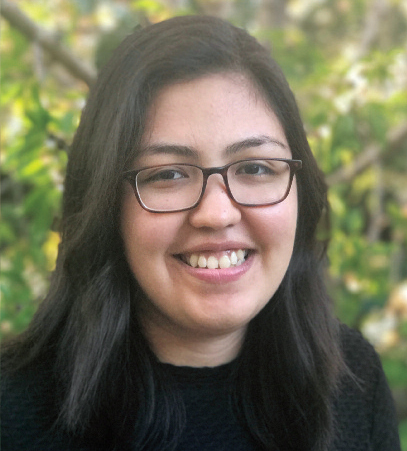

Growing up in the tiny agricultural town of Delhi in California’s Central Valley, Brenda Cruz didn’t have many role models for higher education. Few of her high school peers planned to go to college, and no one else in her family had done so. But when Cruz decided to pursue her bachelor’s degree, she chose not to attend UC Merced nearby, but Berkeley — seemingly a world away.
Once she arrived on campus as a pre-med student however, the range of options felt a bit overwhelming. She’d hear her graduate student instructors talking excitedly about their research, but “it all felt abstract and intimidating,” she remembers. Cruz began applying as a sophomore for undergraduate research positions and last fall, as a third-year MCB major, she was funded through the Biology Scholars Program to work for a year in the cell and developmental biology lab of MCB Professor David Weisblat.
Cruz now spends three afternoons a week studying the embryogenesis of leeches to characterize how the species grows in life stages from eggs to adult. Why leeches? “Since their embryos are so big, we can see the cells more clearly,” Cruz explains. “Our main focus is studying genes that regulate development.” Gene cloning, with its many steps, and embryo microinjections are among the procedures she’s become experienced with.
Undergraduate research programs like the Biology Scholars Program benefit everyone involved, from students to mentors and departmental culture as a whole. “Undergrads bring a fresh enthusiasm, and sometimes even new ideas, to a project,” says Weisblat. “They provide valuable extra hands, and equally valuable mentoring experience for graduate students and postdocs. And, of course, they keep us up to date on current slang and social media trends.”
A grant from the National Science Foundation Summer Research Experience for Undergraduates will enable Cruz to continue her work through the summer. After graduation, she plans to attend graduate school or medical school.
Brenda Cruz’s Four Tips for Applying to Undergraduate Research Programs
- Network. Use word-of-mouth to learn about opportunities from other students and GSI’s.
- Be persistent. Email professors (especially your own) and GSI’s. Don’t give up. Keep applying and looking for research opportunities.
- Improve your statement of purpose. This document will go places you can’t see. Make sure it’s as good as it can be.
- Be patient. It can take a long time to secure a spot. But working hard to get it makes the success that much sweeter.



